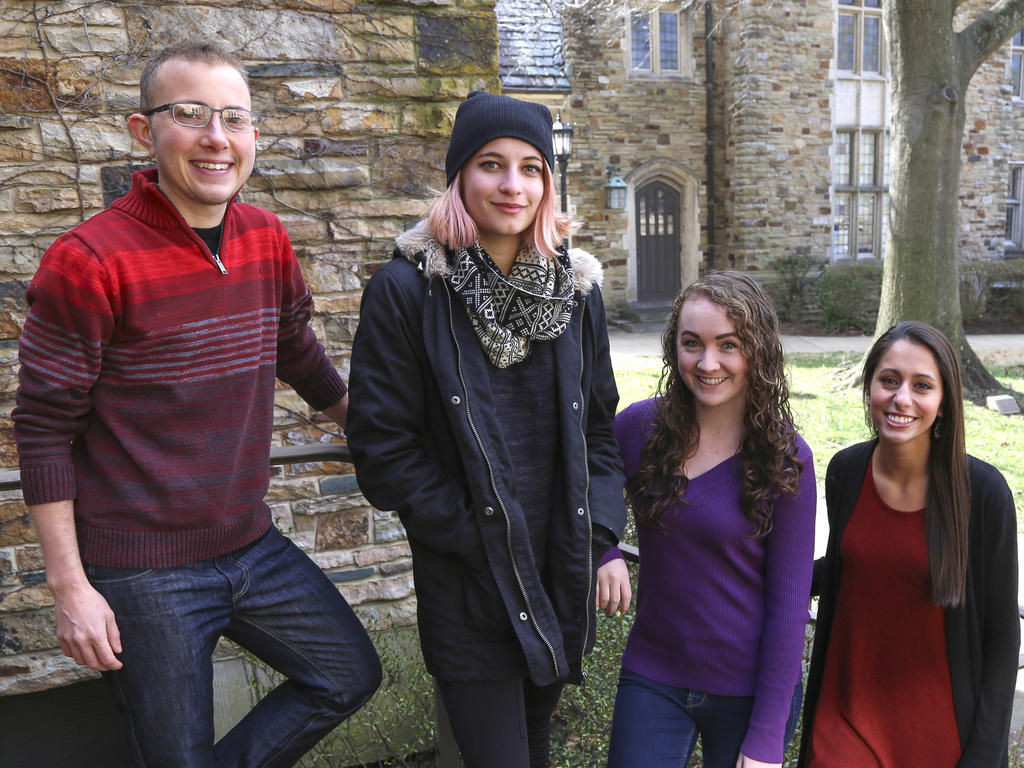This week, four members of the Rhodes community are attending the very first USPATH (United States Professional Association for Transgender Health) conference. Dr. Rylan Testa, assistant professor of psychology and director of the Health Behavior and Disparities Lab, Caleigh Shepard ’17, Molly Mulhern ’18, and Amanda Toumayan ’17 traveled to Los Angeles to showcase their research to the national conference of psychology professionals. The students will display two poster boards, and Testa will present his paper on the self-reported reasons for suicide attempt in transgender people.
While this conference is a first for the students, Testa previously attended the association’s international conference in Amsterdam, hosted by WPATH (Word Professional Association for Transgender Health). He has published numerous articles, one of which appeared in the Journal of Abnormal Psychology, and authored a workbook for transgender and gender nonconforming youth. A few years ago, Testa conducted a survey that received more than 900 responses from individuals of the transgender community about their experiences concerning their gender. The survey, which consisted of hundreds of questions and took about an hour to complete, resulted in a vast resource for researchers. Testa’s paper, as well as the students’ posters, drew from this huge data set.
Mulhern and Shepard worked on the same research project and will be presenting their poster together at the conference. They analyzed the effects of non-affirmation and its relationship to social anxiety. Having presented their poster at Rhodes’ Undergraduate Research and Creative Activity Symposium, the students are eager to participate in a larger discussion. Preparing for the conference, Mulhern said “I imagine it’ll be a bit more intimidating at the conference, because it’s professionals from all over the world.” Added Shepard, “I’ve never done anything like this before, and I’m excited to have this experience and start a more professional career in research.”
Toumayan studied stressors related to gender and their relationship with alcohol or drug abuse. Her research showed a connection to drug use, but not alcohol use. Toumayan sees the potential of such research: “What we found in the study could inform current treatment options for transgender people struggling with substance abuse.” Toumayan discovered that studies show that specialized treatment programs for transgender people are largely nonexistent, but believes an affirmation of differences is needed in order to create the best treatment programs. “Research like this is just the beginning,” she added.
When the students first began their research, they recognized how little research exists exploring the health of transgender people. Testa noted that most of the research in the past considers transgender experiences as a pathology or illness. “The history in the field has not been one of raising up transgender voices,” he explained. “That is something that is an aim of my research.”
Conducting research that has the potential to save lives has made on impact on the students, and both Shepard and Toumayan say they hope to continue to do similar research outside of Rhodes in the coming years. Mulhern will continue to work with the survey data set, helping to lay the groundwork to further understand the relationship between gender and health.
By Swaneet Mand ’18
